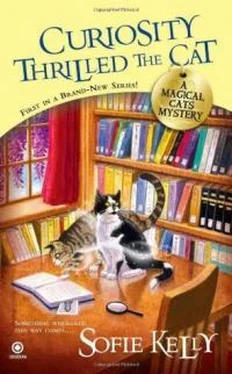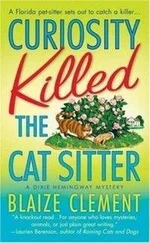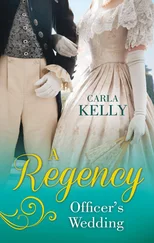But what dominated the room, almost forcing you to look, were the sculptures. An enormous metal bird, an eagle, I realized, as I moved closer, with a wingspan of at least six feet, was suspended in flight from the ceiling beams at the back half of the room.
I could visualize the feathers, the bird’s beak, its powerful chest muscles, even though the sculpture was nothing more than a metal framework. Somehow I could see the bird. Somehow I could see it flying.
Below, reaching probably eight feet into the air, was a bear, one paw raised above its head. Again, somehow I could see fur and claws and power in the curves of metal.
But it was the eagle that drew me. I stood below it, head thrown back, and just stared. Behind me I heard Oren turn off the water at the sink and in a moment he came to stand beside me. “Oren, this is incredible,” I said.
“My father,” he said.
We moved to the huge bear, which was even more imposing up close. I reached out a hand to touch it and then pulled it back. “It’s okay,” Oren said. “You can’t hurt anything.”
The metal was rough under my fingers. “Your father was incredibly talented,” I said. I realized these were the sculptures Rebecca and Roma had been talking about.
Oren nodded. “Yes, he was.”
I turned slowly to look at the other sculptures. Over by one of the smaller, abstract pieces stood a beautiful . . . piano? I wasn’t sure. I walked over to it. “This isn’t a piano, is it?” I said to Oren.
“No.”
“A harpsichord?”
He smiled. “That’s right.”
“You built this.”
He ducked his head. “I did.”
“You’re very talented, as well,” I said. I pushed my hands into my pockets, afraid I’d touch something I shouldn’t.
Oren hauled a hand back over his hair. “Thank you,” he said softly. He cleared his throat. “I have coffee. Would you like a cup?”
I nodded. “Yes, I would.”
The coffeemaker was on the counter by the sink. Oren pulled over a couple of stools, then poured a cup for each of us. There was a small carton of milk and a dish of sugar cubes on a tray by the coffeemaker. After we’d both doctored our coffee, he folded one hand around his mug and looked at me. “You want to talk about Mr. Easton,” he said.
“You knew him when he was Douglas Williams.” He nodded, took a drink from his mug and set it on the counter again. “The other day in your office, I tried to convince myself you hadn’t noticed that I’d recognized his real name.”
“You were both at Oberlin at the same time.”
He looked past me, nodding slowly again.
I fished in my pocket and pulled out the sheet of paper Owen had brought me, unfolding it on the counter between us. “That’s your music.” I flattened the paper with my hand. “Gregor Easton stole it.”
For a long moment Oren didn’t move, didn’t speak. Then finally he said, “Yes.”
The truth hung there between us. I wanted to reach out and somehow wave it away. “Why didn’t you say something?”
Oren looked past my left shoulder at the sculpture suspended from the rafters. “Kathleen, my father was incredibly talented,” he began.
I turned for another glimpse of the sculptures myself. “Yes, he was.”
“He was an artist. But all anyone saw him as was a carpenter.” Oren studied his own hands for a moment. “He was a good carpenter, but he wanted to be an artist.”
I nodded, unsure of where the conversation was going, but reluctant to stop Oren while he was talking.
He looked at me now. “I could play the piano when I was four. I was composing music when I was six. I created my own method of notation because I couldn’t read music back then.”
The piece of paper Hercules had found. I was right. It was a kind of code.
Oren picked up his mug and took a long drink. “I could—I can—make music with almost any instrument: piano, guitar, bass, mandolin. I can play that harpsichord.” He set the coffee back on the counter.
“A musical prodigy. That’s what they told my parents I was. Gifted. If I look at a piece of music just once, I can remember it and play it. Years later I can play it.” He wiped his mouth with one hand. “I was sixteen when they sent me to Oberlin. I’d long since outgrown all the music teachers in this area, probably in the state. I was auditing a seminar class Easton was teaching as a grad student. I dropped a piece of my music one day. I knew how to write music by then, but I was so used to notating my way that I’d kept on doing it.”
“What happened?” I asked, although I was pretty sure I knew.
“I explained how the notation worked. He offered to help transcribe what I’d written into conventional notation. There was too much music for me to do it by myself. By then I had stacks of compositions, but no one else could play them.”
I set my cup on the counter. “He took your music. Why didn’t you say something? Your notation proved you’d written everything. The university would have expelled him.”
Oren wiped his hands on his pants. “I don’t know if this will make sense to you, Kathleen, but I didn’t want to end up like my father.”
“I’m sorry,” I said. “I don’t understand.”
“No one knew I was composing music. To me, all I was doing was writing down what I heard in my head so it would go away. It was bad enough people were already beginning to see me as some kind of musical wonder. If they found out I was writing my own music, as well . . .” He didn’t finish the thought.
“My father wanted me to have the chance he never had—to be an artist. The thing was, I wanted what he had.”
I realized then what he was trying to tell me. “You didn’t want to be a musician.” I looked around at the tools and the work space. “You wanted to be a carpenter.”
Oren nodded. “So many people thought I had a gift. I thought it was a curse.” He played with his coffee cup, turning it in slow circles on the counter. “The funny thing is, he helped me.”
“Easton?”
“I know it sounds strange. Doesn’t it? I had a breakdown. He told my parents I wasn’t nearly as talented as everyone thought.”
“Oren, you know that’s not true. From what I’ve heard Easton was the one who lacked talent.”
He leaned toward me. “I didn’t care,” he said. “His saying I didn’t have much talent let me have the life I wanted to have.” He pushed the mug away across the counter. “It was years before I realized Doug Williams had become Gregor Easton. I was in a music store in Minneapolis and I heard my own music. Before that, I had no idea. And when I thought about it, I decided where was the harm? I didn’t want that life and he did.”
“Something changed,” I said.
Oren slid off his stool and walked over to the harpsichord. He ran his fingers lightly over the keys. “I was working at the theater the second day of practice after Easton got here. He was playing that piece you heard me playing the other day.” He picked out a melody on the keyboard. “It wasn’t . . . right. It didn’t sound the way it was supposed to sound.” He pulled his hands away from the keys. “I knew how that music was supposed to sound. When everyone was gone I sat down at the piano. I hadn’t played for many, many years. But someone was still in the theater.”
“Easton.”
“Yes.” Oren sat on the harpsichord bench. “He wasn’t a good person, Kathleen. He hadn’t come to help out the festival. He was looking for more music.”
“More of your music.” I leaned back against the counter.
“He told me the music should be given the audience it deserved.” He stared at the wide wooden floorboards. “The Stratton has had money problems for years. I told Easton I would give him the rest of my music and he could claim it as his own, but he had to give half of everything he made with it to the theater. He said we could work something out, but he’d have to see the music first to decide how many changes he’d need to make.”
Читать дальше












